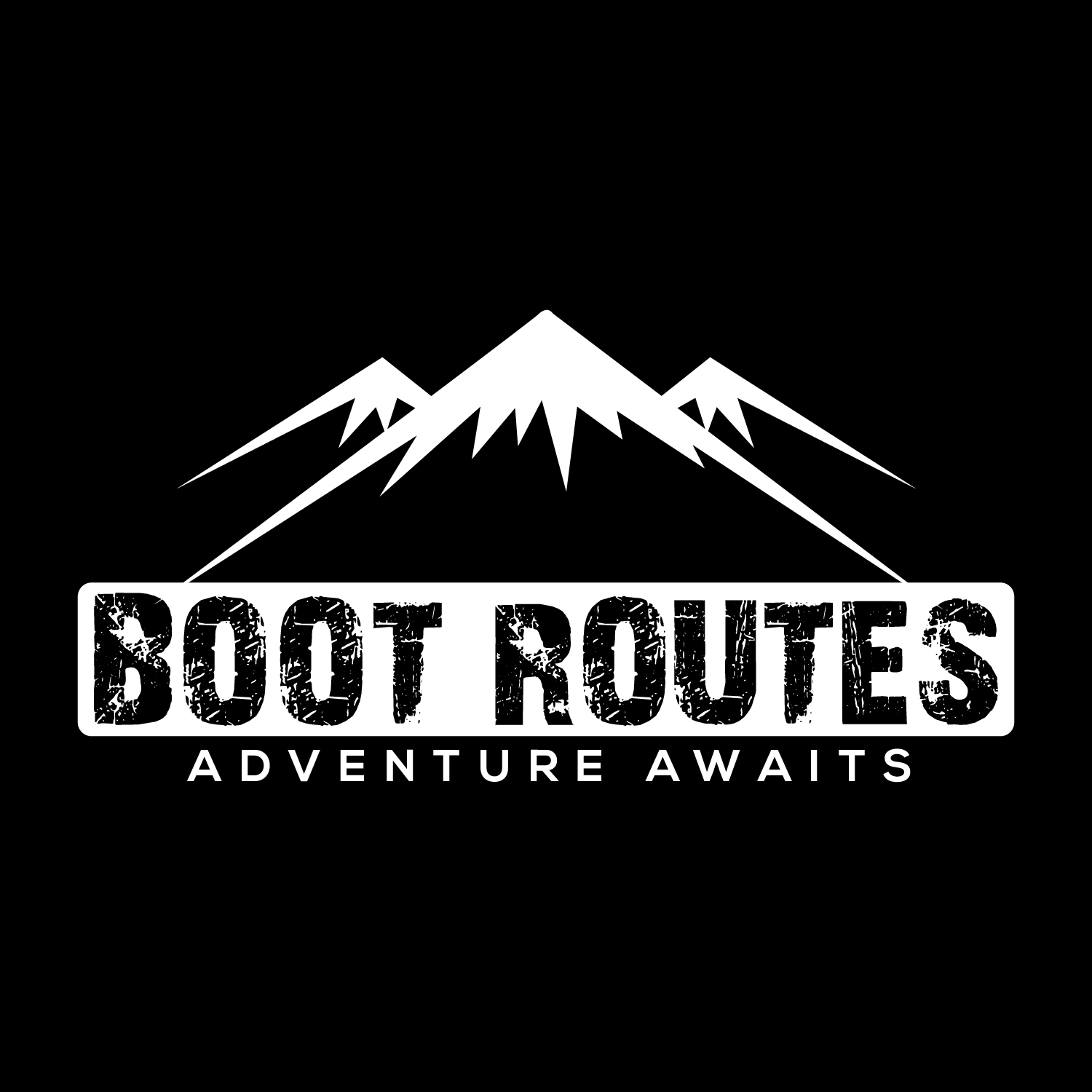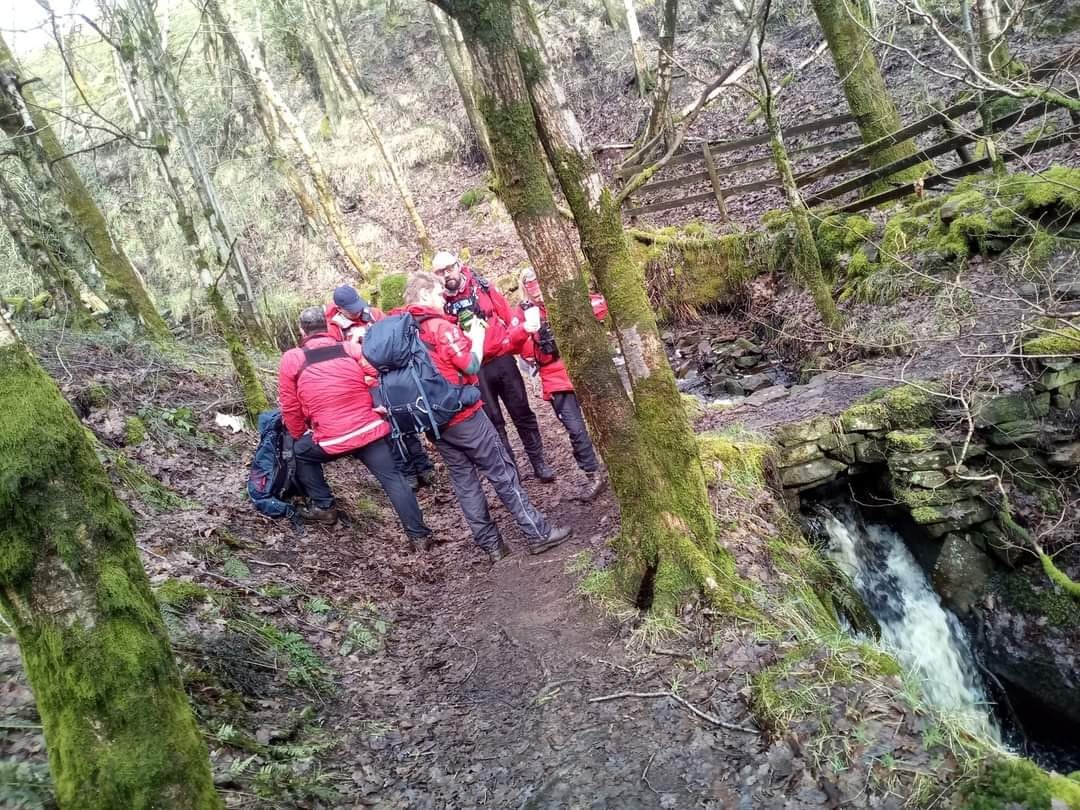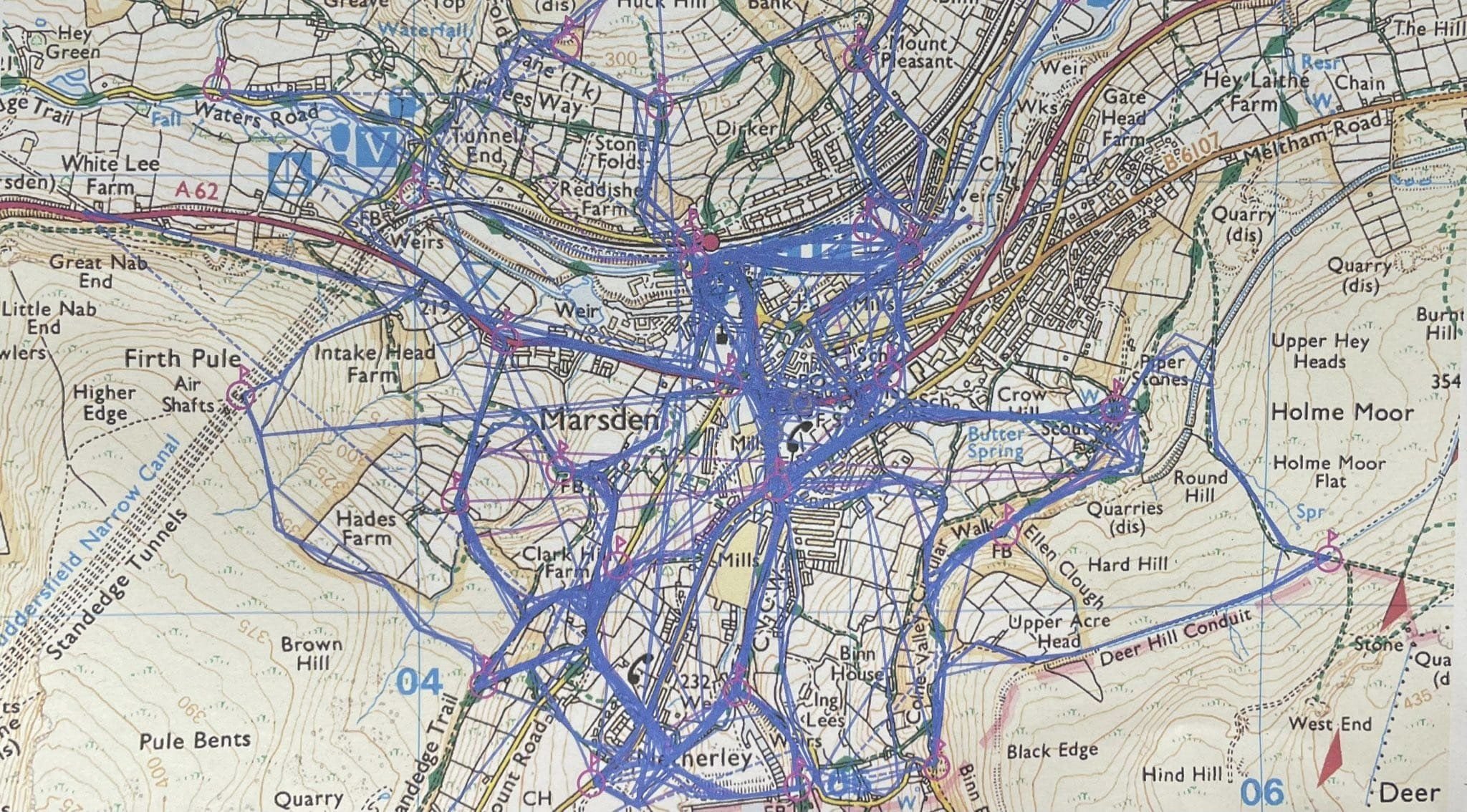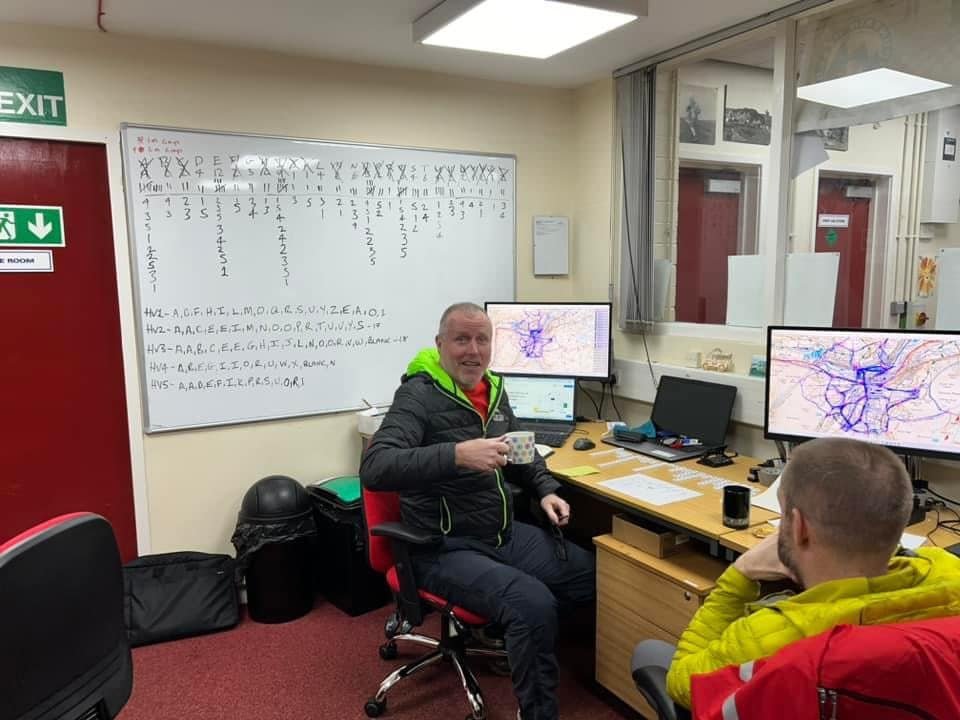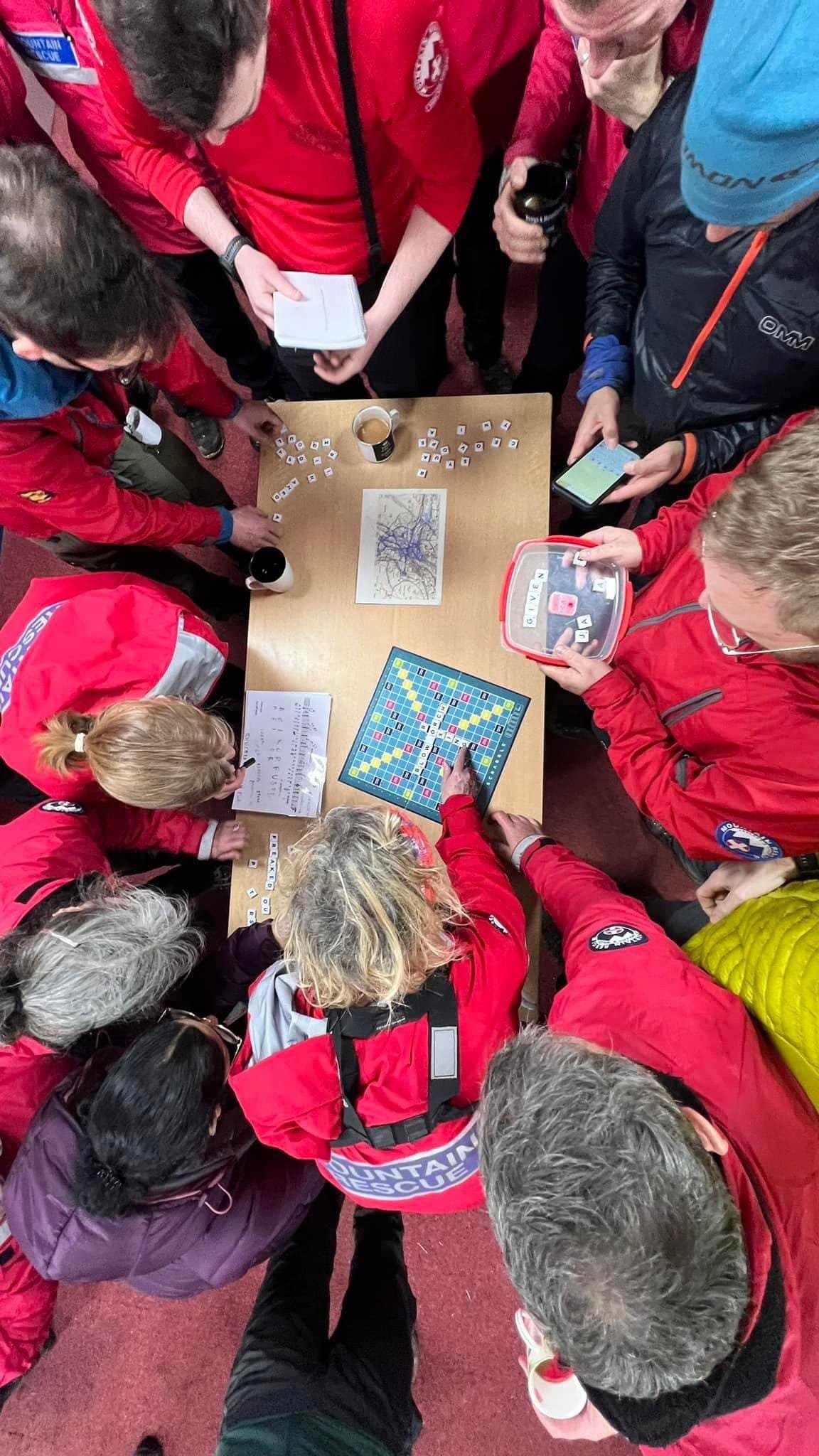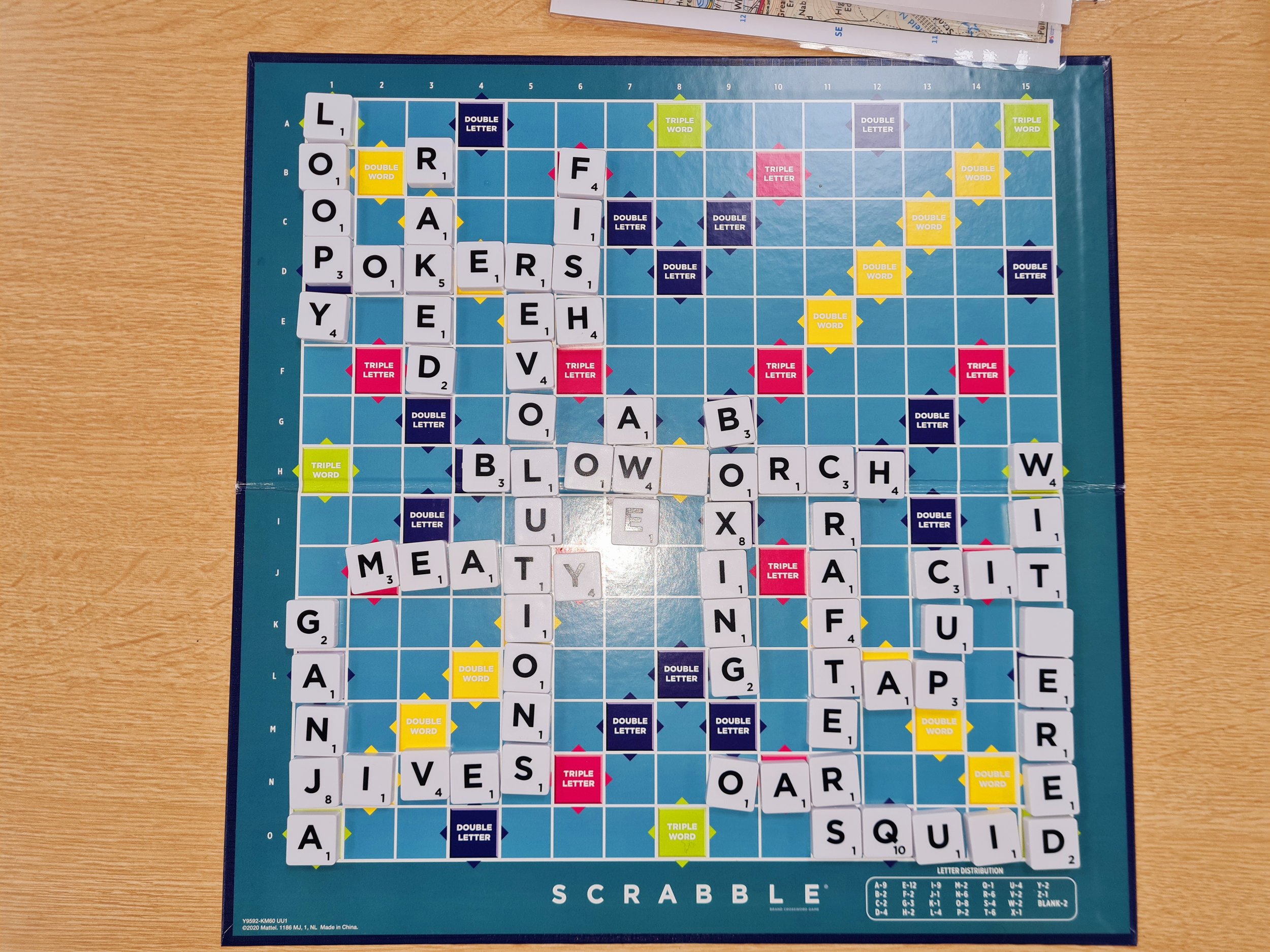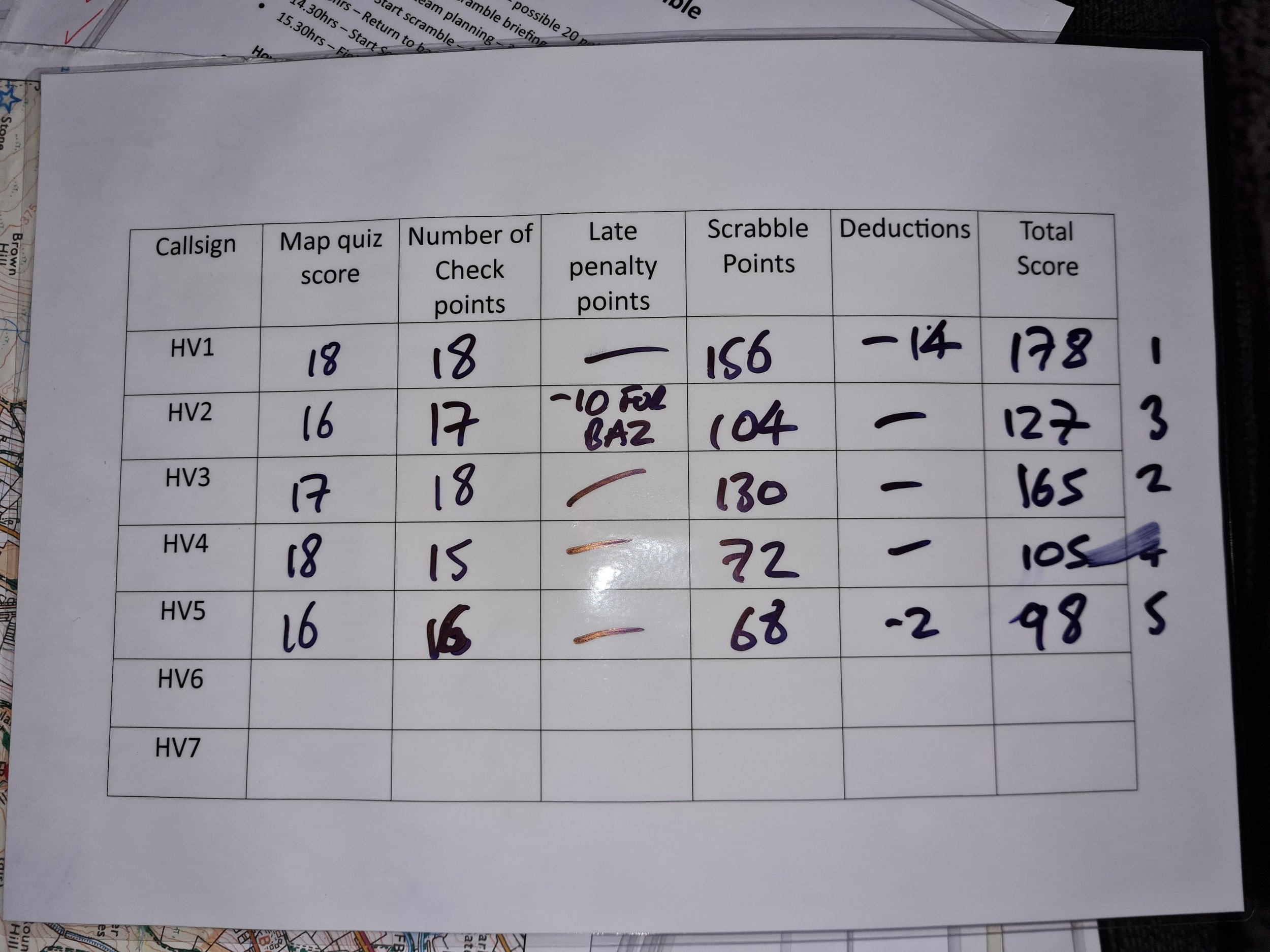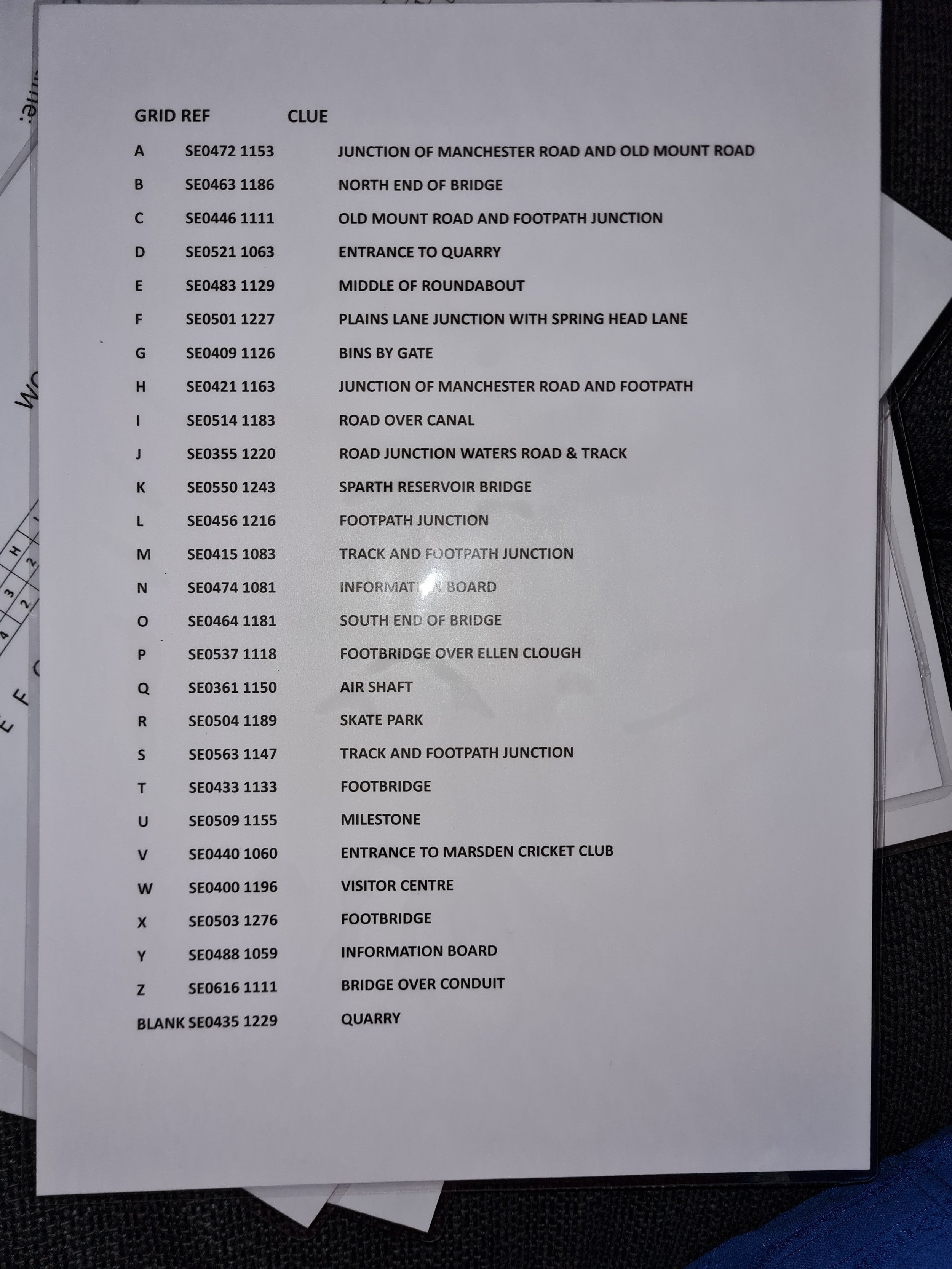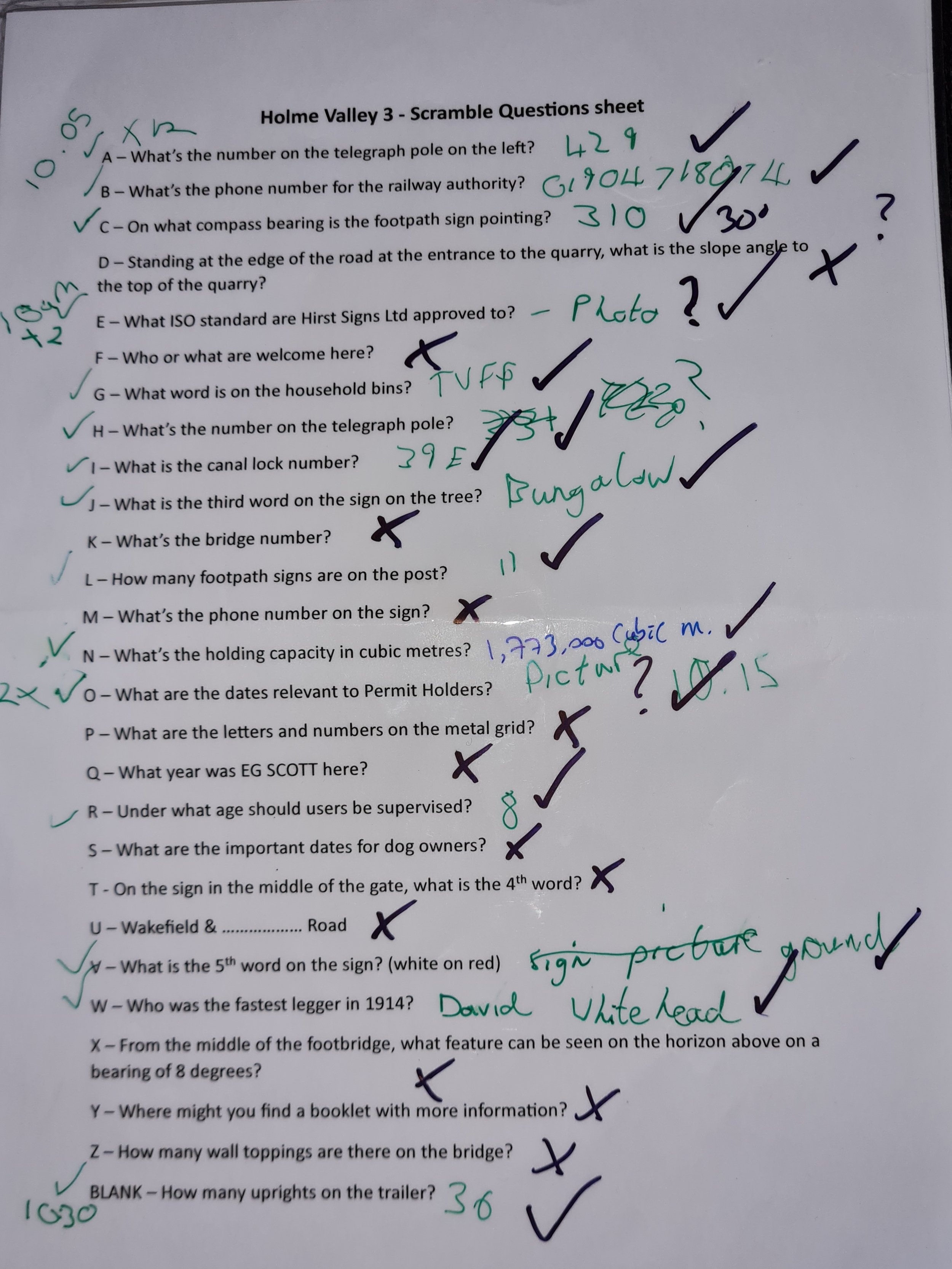Scrabble Scramble
/In the realm of wordplay and linguistic prowess, Scrabble stands as a timeless classic that has brought joy to many for decades. Yesterday, Holme Valley Mountain Rescue Team played host to a riveting Scrabble Scramble event that tested the teams navigation, comms and vocabulary skills. The air was charged with excitement as the team geared up for a battle of navigational and vocabulary wits. Let's delve into the highlights of the day.
The overall aims of the day, were to practice Navigation and Radio Communication Skills (Comms) and develop teamwork, with a bit of fun thrown in for good measure. The day started splitting those present into 5 teams. Then followed a quick knowledge test on OS map symbols. This was basically an ice breaker to get the teams to start working together and to get some points on the board towards the overall score for the day.
Scramble
After the quiz, the teams were then briefed on the main exercise of the day, ‘The Scramble’. I had spend a few days planning this, but basically there were 27 checkpoints around the area with each checkpoint representing a Scrabble tile (A - Z & Blank). The high scoring X, Q and Z were further away from base and harder to navigate to, with the low scoring vowels closer to base and easier to find. The teams were given 8 figure grid references, checkpoint clues, info cards, and a list of questions to answer at each of the 27 checkpoints. They then had 4 hours to plot the checkpoints onto their maps, plan a route, discuss their tactics and visit as many of the checkpoints as possible. At each checkpoint was a generic question for them to answer, i.e. ‘What is the number on the lamp post?’ and on returning back to base they swapped correct answers for Scrabble tiles relevant to the checkpoints.
Scramble Rules
Obviously there’s going to be lots of rules, but the simple ones were:-
They had to stick together as a team.
No vehicles to be used.
No running allowed.
They had to visit at least 10 locations.
Full normal rucksacks (just in case we were deployed on a callout, or if they came across an incident).
Had to visit checkpoints A, E, I & O at least once.
Use maps and compasses only (but I’m sure that some phones came out)
After midday, they could revisit checkpoints where there are more than 5 Scrabble tiles
All teams had to be back at base for 14.00hrs (Points would be deducted from their score for every minute that they were late)
Once all the possible tiles had gone from a location, then control would broadcast to all callsigns that the checkpoint was closed (i.e there is only 1 letter X in a Scrabble set, so once a team has visited checkpoint Xray, then that checkpoint is closed, so it payed to monitor the radio, which one team found out the hard way)
This was also an exercise to practice our comms skills, and although this started a bit sketchy, by the end of the day, the comms was super slick. We also had a couple of team members out in one of the team vehicles to act as spotters, to make sure everyone was abiding by the rules, and to act as a safety vehicle in case anybody needed to drop out.
On arrival back at base the teams then swapped correct answers for the relevant checkpoint Scrabble tiles. One team (Holme Valley 1) had started with checkpoint Uniform, then headed out on a limb to Checkpoint Quebec, then another cross country march to Checkpoint Zulu, collecting as many letters as possible in between the key checkpoints. It was certainly interesting sitting in control to see the various team tactics. Plus we were able to monitor their radio GPS locations on the mapping screen to ensure that the teams were sticking together.
Scrabble rules
The team that had visited the most checkpoints started the Scrabble game first, then rotated around the table clockwise. On this occasion it was Holme Valley 3 (HV3) that had visited 18 locations and got 18 tiles, and they started first, with HV4, HV5, HV1 and HV2 following in that order.
Tiles had to laid out in front of each team, so that all the other teams could see what letters each team had, a completely different rule to normal Scrabble and one that certainly changed the Scrabble games’ tactics.
Each team had 2 minutes to get their word onto the board.
A team could challenge another teams played word, and if the word was incorrect (i.e. not in the Official Scrabble Wordbook or Collins dictionary) then they could steal a tile of their choice from the playing team, however if the word was correct then the playing team were able to steal a tile of choice from the challenging team.
Once a team has got rid of all their tiles, the other teams got one more go each.
Points were deducted, to the value of any tiles that were left that the team hadn’t managed to play.
What followed was an intense half an hour of focused faces, and one or two choice words when another team covered a triple word they had been eyeing up. There were some excellent words placed on the board, with HV3 managing to use their letter Q with the word SQUID, and get it placed on a triple word square as well. Also a bit surprised to see the word GANJA being laid down, and the longest word of the the day was REVOLUTIONS
Overall an excellent day out enjoyed by everyone, with plenty of navigation, route planning and comms skills tested, and some great examples of teamwork. There was of course some friendly rivalry between teams, with one team grassing another team up for someone lightening his rucksack before they set off. That team were of course deducted 10 points. The winning team was HV 1 with an impressive score of 178 points, second place was HV3 with 165 points, third place was HV2 with 127 points, fourth place was HV4 with 105 points, and last but not least was HV5 with 98 points. Of course an event such as this can be planned to the end of the earth, but it is also down to the people involved on the day to make it a success. Luckily for me the team responded to this new training format very well indeed, and it is down to their enthusiasm, adaptability, and personalities that made it a success, and for that, I sincerely thank them all. It’s looking like this could be an annual event.
I received some excellent feedback from a few team members, with words like ‘Phenomenal’, ‘Absolutely Fabulous’, and ‘Best training day in years’. This feedback can be found on the Boot Routes testimonials page. So, if you’re planning a team event, or looking for something similar for a charity event, please feel free to copy the format, or get in touch if you need us to plan and prepare one for you. Thanks for reading.
